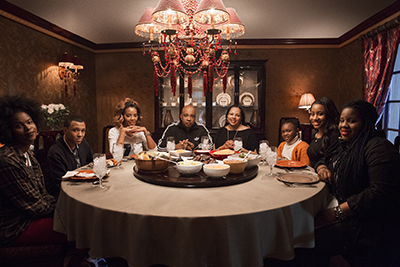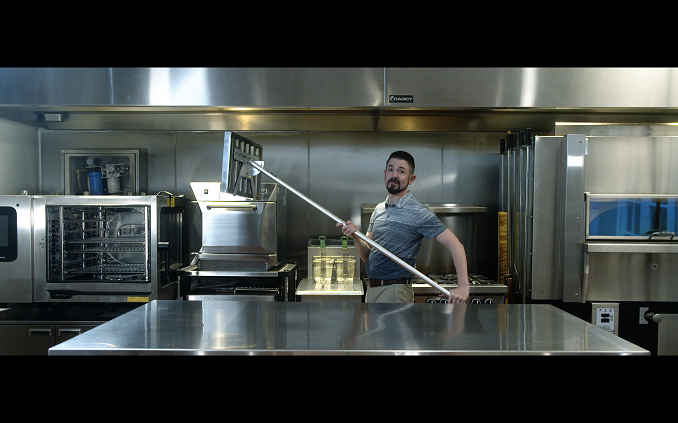“You’re crazy to open a restaurant in this economy!”
“Do you know how many restaurants fail in the first year?”
“Why quit your stable job for such a risky venture?”
If these statements sound familiar, you’re not alone. When you share your dream of opening a restaurant, you’ll inevitably face an onslaught of doubters, critics, and well-meaning friends and family who think you’ve lost your mind. According to CNBC, 60% of new restaurants fail within the first year. Statistics like these give plenty of ammunition to naysayers.
But here’s the truth: every successful restaurateur faced critics on their journey. The difference between those who succeed and those who don’t often comes down to how they handle this criticism and whether they can stay focused on their vision despite the noise.
Understanding the Critics in Your Life
Not all criticism is created equal. When someone expresses doubt about your restaurant dream, it typically falls into one of these categories:
1. The Genuinely Concerned
These people care about you and worry about the financial and personal risks involved in opening a restaurant. Their concerns come from a place of love, not doubt in your abilities.
2. The Uninformed Opinions
These critics base their feedback on general statistics or second-hand stories rather than understanding your specific concept, skills, or business plan.
3. The Projectors
These individuals project their own fears and insecurities onto your dream. They couldn’t imagine taking such a risk themselves, so they assume you shouldn’t either.
4. The Competitors
Sometimes, established players in the industry might subtly discourage newcomers to protect their territory.

How to Differentiate Between Valid Concern and Noise
When facing criticism about your restaurant dream, ask yourself these questions:
- Does this person have relevant experience in the restaurant industry? Feedback from someone who has actually owned or managed a restaurant carries more weight than someone who’s never worked in hospitality.
- Is their concern specific or general? “Your location has had three failed restaurants in five years” is specific feedback worth considering. “Restaurants always fail” is a generalization you can largely ignore.
- Do they offer solutions or just problems? Critics who only point out obstacles without suggesting alternatives are rarely being constructive.
- What’s their relationship to you? Your immediate family will view your decisions differently than extended family or acquaintances. Their concerns deserve more thoughtful consideration.
Finding Your “Why” and Using It as Your Shield
The most powerful defense against doubters is a crystal-clear understanding of why you want to open a restaurant in the first place. Your “why” serves as both motivation and armor.
Take time to articulate your reasons beyond simple platitudes like “I love food” or “I want to be my own boss.” Dig deeper:
- Are you preserving family traditions through food?
- Do you see an unmet need in your community?
- Is there a cuisine or concept you believe people deserve to experience?
- Do you want to create a gathering place that builds community?
Write down your “why” and revisit it whenever doubt creeps in. The restaurateurs who persevere through challenges are those with purposes bigger than profit.
Strategies for Standing Firm Against Naysayers
Create a Personal Board of Directors
Identify 3-5 people whose opinions you genuinely value and who understand your vision. These might include:
- A mentor in the restaurant industry
- A successful business owner (even in another field)
- Someone who knows your work ethic and capabilities
- A financial advisor familiar with your situation
When facing important decisions or doubts, consult this “board” rather than polling everyone in your life.
Compartmentalize the Feedback
Not every opinion deserves equal weight. Create mental buckets for the feedback you receive:
- Must Consider: Feedback from industry experts or your “board”
- Might Consider: Thoughtful feedback from those who care about you
- Acknowledge and Release: General negativity or uninformed opinions
Prepare Your Responses
Having ready responses to common criticisms helps you stay confident and prevents being caught off-guard:
When they say: “The restaurant industry has such a high failure rate!”
You say: “That’s why I’ve studied successful restaurant models and identified what makes them work. My concept addresses specific gaps in the local market.”
When they say: “Why would you quit your stable job?”
You say: “I’ve calculated the risks carefully and built a financial runway that allows me to pursue this dream responsibly.”

Learn to Recognize Projection
Many naysayers are simply projecting their own fears and limitations onto you. Remember that their doubts often reveal more about them than about your capabilities or concept.
As studies of entrepreneur psychology have shown, risk tolerance varies widely among individuals. What seems recklessly dangerous to one person represents an acceptable calculated risk to another.
Real-World Success Stories: They Doubted, We Proved Them Wrong
The restaurant landscape is filled with concepts that faced initial skepticism but went on to redefine the industry:
Chef Kerry Simon, mentioned in my book, faced doubts when he created upscale versions of comfort foods and nostalgic treats. Critics questioned whether diners would pay premium prices for elevated versions of snack cakes and meatloaf. His success proved that connecting food to emotions and memories creates a powerful dining experience that transcends traditional expectations.
Chipotle faced skepticism about whether fast food could be both quick and high-quality. Founder Steve Ells’ commitment to his vision revolutionized fast-casual dining.
Christina Tosi’s Milk Bar challenged conventional dessert wisdom by celebrating nostalgic, unfussy treats in an era of sophisticated pastry. Critics doubted whether cereal milk ice cream and compost cookies would appeal to sophisticated urban diners. Today, her empire continues to grow.
The Family Dynamic: When Those Closest to You Don’t Get It
Perhaps the most challenging critics are those closest to you—parents, spouses, and close friends who worry about your financial stability and work-life balance.
Approach these relationships with both firmness and compassion:
- Set boundaries around restaurant talk. Sometimes, limiting discussion about your plans with certain family members is the healthiest approach.
- Involve them appropriately. Find ways for skeptical family members to participate in your journey without giving them veto power. Ask for their expertise in specific areas rather than general feedback on the concept.
- Acknowledge their fears. “I understand you’re worried about the financial risk, and I appreciate that you care about my security. I’ve created a detailed business plan that addresses these concerns.”
- Show, don’t tell. Actions speak louder than words. Instead of defending your dream verbally, focus on methodically executing your plan and letting the results speak for themselves.

Turning Criticism into Constructive Improvement
The most successful restaurateurs don’t ignore all criticism—they transform it into fuel for improvement. When faced with doubt:
- Extract the kernel of truth. Even in unfair criticism, there might be a useful insight worth considering.
- Strengthen your plan. Use criticism as motivation to make your business plan even more bulletproof. When someone points out a potential flaw, thank them and use it to improve.
- Collect evidence. Gather data, testimonials, and examples that address common concerns. If people doubt your cuisine will appeal to local tastes, conduct tastings and document feedback.
Conclusion: Your Dream, Your Journey
Remember that food and hospitality trends constantly evolve, and yesterday’s “crazy idea” often becomes tomorrow’s obvious success. Some of today’s most celebrated restaurant concepts were initially dismissed as unmarketable or unsustainable.
The path to restaurant success isn’t about avoiding all criticism—it’s about developing the discernment to know which feedback serves your vision and which simply reflects others’ limitations.
As you move forward with your restaurant dream, keep these final thoughts in mind:
- Not everyone will understand your vision, and that’s okay.
- Your determination and clarity of purpose are more important than universal approval.
- The most innovative concepts often face the most initial resistance.
- Your “why” must be strong enough to sustain you through challenges.
The restaurant industry needs fresh ideas and passionate entrepreneurs. If you’ve done your homework, validated your concept, and feel that unmistakable pull toward hospitality, don’t let doubters extinguish your flame. Instead, let their skepticism strengthen your resolve to prove them wrong.
Are you facing doubters on your restaurant journey? Share your experiences in the comments below and let us know how you’ve handled criticism while staying true to your vision.
Written by Michael Politz, Author of Guide to Restaurant Success: The Proven Process for Starting Any Restaurant Business From Scratch to Success (ISBN: 978-1-119-66896-1), Founder of Food & Beverage Magazine, the leading online magazine and resource in the industry. Designer of the Bluetooth logo and recognized in Entrepreneur Magazine’s “Top 40 Under 40” for founding American Wholesale Floral. Politz is also the founder of the Proof Awards and the CPG Awards and a partner in numerous consumer brands across the food and beverage sector.








